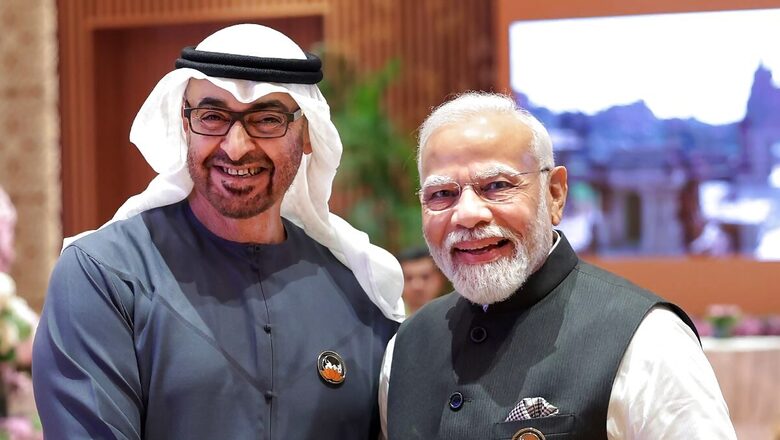
views
The India-UAE relationship has experienced remarkable growth in recent years, transforming from a historically trade-centric partnership to a multifaceted strategic alliance going beyond the traditional aspects of diplomacy and economic connections. India-UAE ties have seen an implosion of cultural exchanges and human ties that have solidified the foundation on which the relationship could grow.
Prime Minister Narendra Modi’s frequent visits to UAE, and Sheikh Mohamed bin Zayed Al Nahyan visiting India and participating in events such as the high-profile Gujarat roadshow, underscore the importance both India and the UAE attach to this relationship. These visits have not only facilitated high-level political dialogue but also provided platforms for showcasing India’s economic potential and attracting investment from the UAE.
However, one of the most important factors in the growing relationship, other than PM Modi’s continuous outreach, has been the way that the UAE President approaches the bond.
MBZ’s Approach to India-UAE Relations
Although Sheikh Khaled’s international engagements have been limited since assuming the role of Crown Prince, his domestic track record reveals a leader with a keen focus on strategic planning, long-term vision, and a pragmatic approach to governance. His involvement in shaping Abu Dhabi’s economic diversification strategy and his leadership in key sectors like technology and innovation demonstrate a commitment to building a sustainable and resilient future for the Emirate. High-level bilateral presidential and prime ministerial visits averaging one per year have firmed the foundation, with Sheikh Khaled having visited India three times since PM Modi assumed office in 2014.
His vision for future India-UAE relations is anticipated to build upon the existing strong foundation while exploring new frontiers of collaboration, aligning with India’s proactive approach in the Middle East. This vision encompasses deepening economic engagement by expanding non-oil trade and exploring opportunities in renewable energy, technology, and innovation, leveraging India’s strengths in these areas.
It also entails strengthening security cooperation through enhanced defence collaboration, including joint exercises and Intelligence sharing, addressing the growing convergence of security interests. Furthermore, it emphasises expanding people-to-people ties by fostering stronger connections through cultural exchanges, educational collaborations, and tourism initiatives, recognising the vital role of the Indian diaspora in the UAE. Finally, it envisions collaborating on global challenges like climate change, food security, and global health, leveraging both nations’ strengths to contribute to global solutions.
India’s growing cultural bond with UAE
The deepening cultural connection between the UAE and India manifests in a variety of ways, reflecting a spirit of mutual respect and understanding that transcends geographical boundaries. Forward-thinking policies further nurture these bonds, promising a future where cultural exchange becomes an even more integral part of the India-UAE story.
A recent and striking example of this cultural blossoming is the inauguration of the BAPS Hindu Mandir in Abu Dhabi. This architectural marvel not only serves as a place of worship for the substantial Indian diaspora but also stands as a powerful symbol of the UAE’s commitment to religious tolerance and inclusivity. This commitment was recently brought to life as the mandir hosted a vibrant four-day Janmashtami celebration, a testament to the growing acceptance and integration of Hindu traditions within the UAE. It’s truly remarkable to witness the open celebration of Janmashtami, Diwali, and other Hindu festivals in the UAE, a testament to the evolving relationship between the two nations.
The UAE’s gesture of illuminating the Burj Khalifa, the world’s tallest building, in the colors of the Indian flag during occasions like Independence Day and Diwali further underscores this mutual respect. In addition, the UAE has implemented concrete policies that facilitate closer people-to-people ties. The Golden Visa program, for instance, grants long-term residency to individuals with exceptional talent and contributions. These acts resonate deeply with the Indian community, both within the UAE and in India, fostering a strong sense of belonging and shared identity and facilitate a flow of ideas.
India-UAE Economic and Diplomatic Ties
The implementation of the Comprehensive Economic Partnership Agreement (CEPA) in 2022 has further catalysed trade and investment flows, positioning the UAE as a key economic partner for India.
CEPA has undeniably acted as a catalyst for trade expansion, as evidenced by the surge in bilateral trade to approximately $85 billion in FY23. This remarkable figure positions the UAE as India’s third-largest trading partner globally and its second-largest export destination. The agreement, through the elimination of duties on over 90 per cent Indian tariff lines and streamlined market access, has particularly fueled growth in non-oil trade sectors.
Indian exports to the UAE, especially in textiles, gems and jewelry, food, and pharmaceuticals, have significantly benefited from preferential market access provisions. This positive trend is projected to continue, with both nations setting an ambitious target of exceeding $100 billion in non-oil trade by 2030, as affirmed during the first meeting of the CEPA joint committee in July 2023 and recently reiterated by the Chairman of CII, R Dinesh.
Beyond Trade
The India-UAE partnership transcends mere trade, encompassing a broad spectrum of collaborations in strategically crucial sectors.
Energy Security: The UAE serves as a critical energy partner for India, being its third-largest source of oil after Saudi Arabia and Iraq. The 2018 agreement between the Indian Strategic Petroleum Reserves Ltd (ISPRL) and the UAE’s Abu Dhabi National Oil Company (ADNOC) for constant pricing and oil supply underscores this vital aspect. ADNOC’s commitment to invest $400 million in storing crude in ISPRL’s underground rock caverns not only strengthens India’s energy security but also demonstrates the UAE’s commitment to a reliable and long-term energy partnership.
Defence Cooperation: Defence ties have deepened significantly, marked by joint military exercises, technology sharing, and defense equipment procurement. The upcoming Desert Cyclone military exercise, the first joint drill between the Emirati and Indian land forces, exemplifies this growing cooperation. The UAE’s interest in the purchase of the BrahMos cruise missile and India’s potential export of spares for the Rafale fighter aircraft are further testaments to the expanding defense industrial partnership.
Investment Flows: The UAE has emerged as a significant investor in India, with cumulative foreign direct investment (FDI) inflows reaching $15.6 billion as of March 2023. Investments are primarily directed towards sectors like services, sea transport, power, and construction, facilitated by the conducive environment fostered by CEPA. Notably, the Abu Dhabi Investment Authority (ADIA), the UAE’s sovereign wealth fund, plans to establish a presence in Gujarat International Finance Tec-City (GIFT City), further boosting investment opportunities.
People-to-People Ties: The 3.5 million-strong Indian diaspora in the UAE forms a cornerstone of the relationship. They serve as a vibrant bridge between the two cultures, contributing significantly to the UAE’s economy while maintaining strong connections with India. Their remittances constitute a substantial source of foreign earnings for India, and they play a pivotal role in fostering cultural exchange and understanding.
Multilateral Engagement: Both nations demonstrate increasing alignment on the international stage, particularly within multilateral forums like the G20 and BRICS. They share common perspectives on issues such as reforming the international trade system, counterterrorism efforts, and resolving global conflicts. The UAE’s recent inclusion in BRICS and its invitation as a special guest to the G20 summit underscore the growing importance of this partnership within the broader global context.
Recent Developments
Recent developments further underscore the deepening ties between India and the UAE. A sharp surge in Indian tourists visiting the UAE, as reported by travel major MakeMyTrip, highlights the growing popularity of the country as a destination for leisure and business travel. Furthermore, the signing of a Memorandum of Understanding (MoU) between the Comptroller and Auditor General of India (CAG) and the UAE Accountability Authority reflects a commitment to strengthening institutional cooperation and promoting transparency in public sector auditing.
Sheikh Khaled’s visit to India holds immense significance for the future trajectory of India-UAE relations. His focus on long-term vision, strategic planning, and fostering strong partnerships aligns perfectly with India’s own aspirations for growth and development. The two countries are poised to embark on a new chapter of collaboration, marked by enhanced trade, deeper strategic engagement, and a shared commitment to addressing global challenges. The Crown Prince’s visit is a testament to the enduring friendship between India and the UAE and a promising sign of even greater things to come.










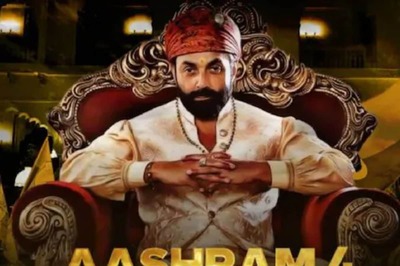


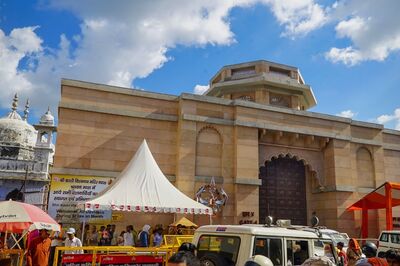
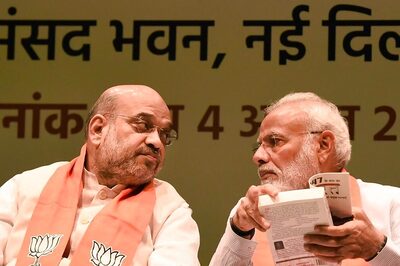

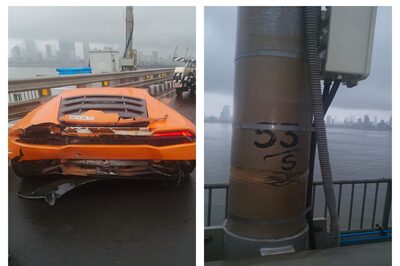



Comments
0 comment